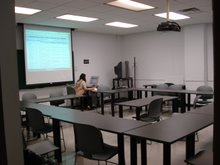Wal-Mart gives up Germany
By Mark Landler The New York Times
SATURDAY, JULY 29, 2006
FRANKFURT Wal-Mart Stores, admitting defeat in Germany's giant but cutthroat retail market, announced Friday that it would sell its 85 stores here to a German retailer, incurring a loss of $1 billion.
The decision to sell out to the Metro Group came two months after Wal- Mart sold its stores in South Korea and amounts to a rare retreat by the world's largest retailer from its breakneck global expansion.
In Germany, analysts say, Wal-Mart never got traction in a market characterized by unrelenting price competition, well-established discounters and the cultural resistance of German shoppers to hypermarkets, which sell fresh vegetables a few aisles away from lawn mowers.
"They walked into a triple-witching hour in Germany," said James Bacos, the director of the retail and consumer goods practice at Mercer Management Consulting in Munich. "They got into Germany at a time when the whole market was shifting away from their model."
Wal-Mart does not break down its results by country, but analysts estimate that it has lost money for most of the eight and a half years it has operated here, sometimes hundreds of millions of dollars a year.
Wal-Mart and Metro did not disclose the terms of the sale, but Wal-Mart said it would record a pretax charge of about $1 billion in the second quarter of fiscal 2007 to write off its German investment.
"We put a good effort into the country," a spokeswoman, Beth Keck, said. "But as we looked at our competitive environment here, we realized it was going to be hard to achieve the results we expect."
Wal-Mart, based in Bentonville, Arkansas, made a similar calculation in South Korea, selling 16 stores to a local retailer, Shinsegae, for $882 million. As in Germany, Wal-Mart did not appeal sufficiently to local tastes, and it struggled to compete with aggressive Korean discounters.
Despite these setbacks, Keck said, Wal-Mart continues to thrive in many countries outside the United States, with particularly robust markets in Mexico, Canada, Brazil and Britain. Wal-Mart had international net sales of $7.6 billion in June, a 29.5 percent increase over June 2005, though nearly two-thirds of that gain came from acquisitions.
Metro, one of the largest German retail conglomerates, said it planned to fold the 85 stores into its chain, Real, which is bigger than Wal-Mart but also ailing. Wal-Mart's German stores employ 11,000 people and generate €2 billion, or $2.5 billion, a year in sales, according to Metro.
By adding those stores to Real's 550 supermarkets and hypermarkets, Metro said it could fortify its purchasing power in what is the world's third- largest retail market. The company said it was committed to hypermarkets.
Some of Wal-Mart's troubles stem from the way it broke into the German market in 1998, according to analysts. By acquiring the outlets of two second- tier retailers, Wertkauf and Interspar, Wal-Mart wound up with a hodgepodge of stores, geographically dispersed and often in poor locations.
The company initially installed American managers, who made some well-intentioned cultural gaffes, like offering to bag groceries for customers (Germans prefer to bag their own groceries) or instructing clerks to smile at customers (Germans, used to brusque service, were put off).
Wal-Mart later went through German managers, before appointing David Wild, a former executive at Tesco, the British chain. He tried to win over customers by selling organic meat and produce.
"They found they had some things to learn about the German market, and they did change, but maybe too late," Bacos said.
Other problems, however, were largely outside Wal-Mart's control. Two German discounters, Aldi and Lidl, dominate the grocery business, with smaller shops that feature cut- rate, though still good-quality, food. Aldi also heavily promotes one-week sales, featuring deeply discounted merchandise, ranging from wine to garden hoses, which draw customers back.
While Wal-Mart's vast size gives it enormous leverage in purchasing clothing and other goods, it must buy much of the food for its German stores locally. And there, it lacks the muscle of Aldi, which has 4,100 shops and a presence in nearly every town in the country.
"Germany is the home of the discounter," said Mark Josefson, a retail analyst at Kepler Securities in Frankfurt. "Wal-Mart is not competing on price, and that is one of its main attributes in its home market."
Beyond these competitive pressures, there is the reality of the German consumer - one of the most parsimonious and price-conscious in Europe. While consumer confidence has picked up recently, Bacos said the proportion of household income that Germans spend on retail purchases continues to decline. Profit margins in German retailing are the lowest in Europe.
"Wal-Mart has tried, for the better part of a decade, to adapt to this market," he said. "I think they've looked at the situation and come to the conclusion, 'How long is it going to take?'"
-Sunyoung-
Subscribe to:
Post Comments (Atom)







No comments:
Post a Comment